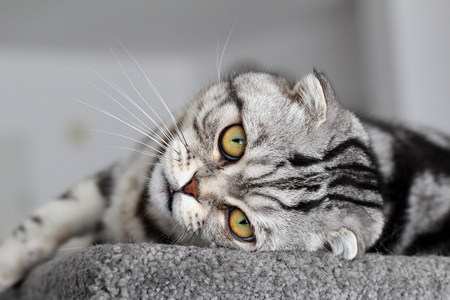Understanding Common Cat Health Issues
Cats are beloved family members in homes across the United States, and keeping them healthy is a top priority for pet parents. By understanding the most common cat health issues, you can spot early warning signs and take action before problems get worse. Here’s a helpful overview of frequent ailments that affect American cats, along with indicators and possible causes to watch for.
Top Cat Ailments in the U.S.
| Ailment | Common Signs | Possible Causes |
|---|---|---|
| Upper Respiratory Infections (URIs) | Sneezing, nasal discharge, watery eyes, coughing, reduced appetite | Viruses (like feline herpesvirus), bacteria, stress, crowded living conditions |
| Fleas and Parasites | Itching, scratching, visible fleas or flea dirt, hair loss, irritated skin | Contact with other animals, outdoor exposure, contaminated environments |
| Digestive Upset | Vomiting, diarrhea, loss of appetite, lethargy | Dietary changes, spoiled food, eating something harmful |
| Urinary Tract Issues | Frequent urination attempts, straining in litter box, blood in urine, vocalizing in pain | Dehydration, stress, diet high in minerals (like magnesium), obesity |
| Dental Disease | Bad breath, drooling, difficulty eating dry food, red or swollen gums | Poor dental hygiene, tartar buildup, genetics |
| Allergies (Environmental or Food) | Itchy skin, ear infections, sneezing, digestive issues | Pollen, dust mites, certain foods or treats |
| Obesity | Weight gain, difficulty jumping or moving around easily | Lack of exercise, overeating, free-feeding dry food all day long |
How to Recognize When Your Cat Needs Care
Cats are experts at hiding discomfort. Keep an eye out for changes in behavior such as sleeping more than usual, hiding away from family members, skipping meals or water bowls, or changes in litter box habits. These subtle shifts can be early indicators that your kitty isn’t feeling well.
Helpful Tips for Pet Parents:
- Regular Vet Visits: Schedule annual checkups to catch potential issues early.
- Monitor Weight: Sudden weight gain or loss can signal underlying problems.
- Litter Box Checks: Unusual urine color or stool consistency can offer important clues about health.
- Grooming Observations: Excessive grooming or bald spots may indicate allergies or parasites.
- Mood Changes: Irritability or withdrawal from social interaction could mean your cat is unwell.
This basic knowledge empowers you to respond quickly if you notice something off with your furry friend. Early intervention is key to keeping your cat happy and healthy as part of the family!
2. Natural Remedies for Minor Cat Ailments
Safe Solutions for Everyday Issues
Cats are curious creatures and sometimes run into small health problems like hairballs, minor cuts, or mild tummy troubles. The good news is, there are simple, natural remedies you can use at home that are safe and often recommended by vets. Here’s a closer look at some common issues and how you can help your cat feel better.
Natural Remedies for Common Cat Problems
| Ailment | Natural Remedy | How to Use | Vet Approved? |
|---|---|---|---|
| Hairballs | Pumpkin Puree (plain, unsweetened) | Add 1 teaspoon to food once a day | Yes |
| Minor Cuts/Scrapes | Saline Solution (salt water rinse) | Clean wound gently with saline solution once or twice daily | Yes |
| Mild Digestive Upset | Bland Diet (boiled chicken and rice) | Feed small amounts for 24 hours, then return to regular food gradually | Yes |
| Mild Itchy Skin | Coconut Oil (small amount) | Dab on affected area or add a tiny amount to food occasionally | Yes, in moderation |
| Fur Loss or Dry Skin | Omega-3 Fish Oil Supplement (pet-safe) | Add as directed to food; check dosage with your vet first | Yes |
Important Safety Tips
- Always check with your vet before starting any new remedy.
- Use only plain, unsweetened pumpkin puree—never pie filling.
- Avoid essential oils unless specifically recommended by your veterinarian.
- If symptoms last more than a day or get worse, call your vet right away.
- Keep all remedies pet-safe and out of reach of children.
Your Cat’s Health Comes First!
These gentle remedies can help with minor issues, but remember—your cat’s health is always the top priority. When in doubt, consult your veterinarian for advice tailored to your furry friend’s needs.

3. Holistic Approaches to Feline Wellness
Integrating Lifestyle Changes for Healthy Cats
Taking a holistic approach means looking at your cat’s overall well-being, not just treating symptoms when they appear. By making small but meaningful lifestyle changes, you can help prevent common cat ailments and keep your feline friend happy and healthy.
Diet Improvements
A nutritious diet is the foundation of good health for cats. Choose high-quality commercial cat food or consult your vet about preparing balanced homemade meals. Avoid foods with too many fillers or artificial ingredients. You can also add safe, natural supplements like omega-3 fatty acids (from fish oil) to support skin and coat health.
| Diet Tips | Benefits |
|---|---|
| High-protein food | Supports muscle health and energy |
| Wet food options | Increases hydration, supports urinary tract health |
| Avoiding grains and artificial colors | Reduces risk of allergies and digestive issues |
| Addition of safe greens (like cat grass) | Aids digestion and provides enrichment |
Environmental Enrichment
Cats need mental and physical stimulation to stay healthy. Boredom can lead to stress-related illnesses, destructive behavior, and even depression in some cats. Enriching your cat’s environment helps prevent these problems.
| Enrichment Idea | Why It Helps |
|---|---|
| Interactive toys (feather wands, puzzle feeders) | Keeps mind sharp, encourages exercise |
| Sisal scratching posts and climbing trees | Promotes natural behaviors, prevents boredom |
| Window perches with bird views | Provides entertainment and relaxation |
| Regular play sessions with humans | Strengthens bond, reduces anxiety |
The Importance of Routine and Cleanliness
Cats are creatures of habit. Maintaining a predictable routine for feeding, playtime, and litter box cleaning helps reduce stress. Always keep litter boxes clean and place them in quiet areas to encourage use and prevent accidents.
Natural Preventive Care Practices
You can also incorporate simple natural remedies into your daily routine:
- Brushing: Regular grooming reduces hairballs and keeps coats shiny.
- Aromatherapy: Use cat-safe calming sprays or diffusers (avoid essential oils toxic to cats).
- Hydration: Encourage water intake by offering multiple bowls or a pet fountain.
- Safe outdoor time: Supervised time in a secure yard or on a leash can provide valuable stimulation.
4. When to Seek Veterinary Care
While safe and natural remedies can help your cat feel better with minor issues, it’s very important to know when it’s time to call in a professional. Home care is great for small problems, but some signs mean your cat needs a licensed veterinarian right away. Ignoring these red flags can put your pet’s health at serious risk.
Understanding the Limits of Home Remedies
Natural and home remedies work best for mild conditions like minor skin irritations or hairballs. However, they are not a cure-all, and some symptoms may signal more serious health concerns that only a vet can diagnose and treat properly. Always use home treatments with caution, and never substitute them for professional care when its needed.
Red Flags: When to See a Vet Immediately
| Symptom | Why It’s Serious | What To Do |
|---|---|---|
| Difficulty breathing | This could be a sign of asthma, heart failure, or other emergency conditions. | Go to the vet or emergency clinic right away. |
| Not eating/drinking for 24 hours | Cats can develop liver problems quickly if they stop eating. | Contact your vet as soon as possible. |
| Vomiting or diarrhea lasting over 24 hours | This can cause dehydration or signal poisoning/infection. | Seek veterinary attention promptly. |
| Lethargy or unresponsiveness | This could mean infection, organ failure, or other serious illness. | Immediate vet visit is necessary. |
| Trouble urinating or blood in urine | This may indicate a urinary blockage, especially dangerous for male cats. | This is an emergency—see a vet now. |
| Seizures or sudden collapse | These are always medical emergencies in cats. | Get emergency veterinary help immediately. |
| Open wounds or severe injuries | Cats hide pain well; untreated wounds can lead to infections. | Have your cat seen by a vet right away. |
| Painful meowing or hiding more than usual | Cats often hide pain; this behavior signals something is wrong. | If you notice changes, contact your vet for advice. |
If You’re Not Sure—Call Your Vet!
If your cat is acting differently and you’re unsure whether it’s serious, it’s always safest to call your local veterinary clinic. Most U.S. clinics are happy to offer quick advice over the phone and let you know if your pet needs to come in. Remember: It’s better to be safe than sorry when it comes to your feline friend’s health.
5. Safe Practices and Precautions with Natural Remedies
Natural remedies can be a great way to help your cat feel better, but it’s important to use them safely and responsibly. In the United States, pet owners are encouraged to follow certain safety standards and take care when choosing ingredients. Here’s what you should keep in mind when using home-based or natural treatments for your cat:
Know the Dos and Don’ts
| Dos | Don’ts |
|---|---|
| Consult your veterinarian before starting any new remedy | Do not give your cat human medications or essential oils without professional advice |
| Use high-quality, pet-safe ingredients from reputable sources | Don’t use ingredients from unknown or non-certified suppliers |
| Start with a small amount to test for allergies or reactions | Avoid giving large doses of any new substance all at once |
| Monitor your cat for changes in behavior or health after treatment | Don’t ignore signs of discomfort, vomiting, diarrhea, or lethargy |
| Store remedies out of reach of pets and children | Never leave homemade treatments where your cat could overdose or ingest unsupervised amounts |
Ingredient Sourcing Tips (U.S. Standards)
- Buy herbs and supplements labeled as “pet safe” or made specifically for animals.
- Check that products are made in the USA or meet FDA regulations for pet use.
- Avoid imported remedies unless they are certified by a recognized U.S. organization like the National Animal Supplement Council (NASC).
- If using food items (like pumpkin puree), make sure they contain no added sugars, spices, or artificial preservatives.
Avoiding Harmful Substances Common in U.S. Households
- No essential oils: Many essential oils such as tea tree, eucalyptus, and peppermint are toxic to cats.
- No garlic or onions: Even small amounts can be harmful to felines.
- No chocolate, caffeine, or alcohol: These are highly toxic to cats and should never be used in any remedy.
- No over-the-counter human medications: Products like acetaminophen and ibuprofen are deadly to cats even in tiny doses.
When to Call the Vet Instead of Using Home Remedies
- If your cat has difficulty breathing, persistent vomiting/diarrhea, seizures, or sudden behavioral changes.
- If symptoms do not improve within 24-48 hours after trying a safe home remedy.
- If you’re unsure about an ingredient’s safety or proper dosage.


